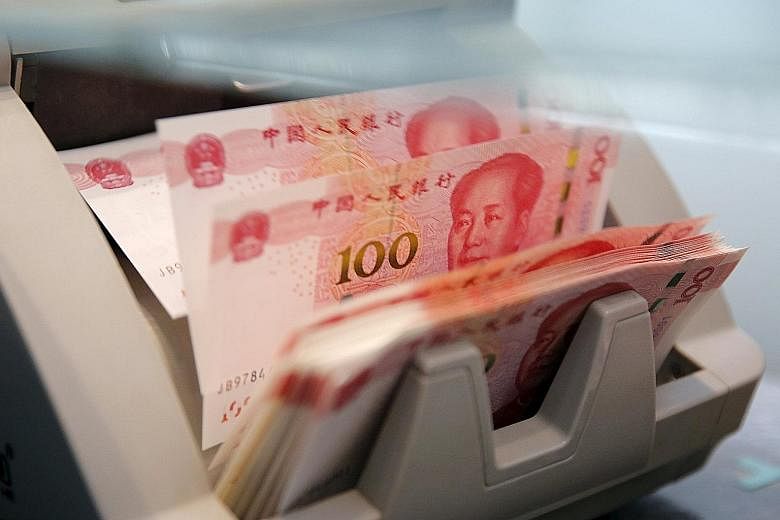Singapore's offshore yuan hub status stands to get a boost from China's latest moves to involve the United States in its push to liberalise its currency, say analysts.
China announced this week that it will grant American investors a quota of 250 billion yuan (S$51.6 billion) to buy Chinese stocks and bonds. It will also appoint a yuan clearing bank in the US.
The move makes the US the second-largest quota holder behind Hong Kong with 270 billion yuan.
The Renminbi Qualified Foreign Institutional Investment (RQFII) scheme, which started in 2011, allows foreign investors access to China's financial markets and helps push for wider use of the yuan.
Singapore joined the programme in 2013 and had its original 50 billion yuan quota doubled last November.
Internationalisation of the Chinese currency has been gaining pace in recent years and it is now one of the top five major international currencies, behind the the US dollar, the British pound, the euro and the Japanese yen.
Including the US in the RQFII scheme will add to the size and depth of the RQFII pool, said Mr Sunil Hiranandani, a senior vice-president at HSBC Singapore.
Mr Hiranandani noted that many US fund houses operate their RQFII funds using Singapore's quota of 100 billion yuan, which is one of the highest within Asia outside Hong Kong. "This reflects a strong interest for China access from the Lion City. Such fund houses can now make use of the additional headroom available through the US, while continuing to operate the fund from Singapore for better proximity to China," he said.
This will further bolster Singapore's status as both a yuan hub and a major financial centre.
UOB senior economist Suan Teck Kin said the move signals the increasing acceptance of the yuan beyond China after its admission into the International Monetary Fund's Special Drawing Rights currency basket. "The greater liquidity flow of offshore yuan is beneficial to the development of Singapore's yuan market," added Mr Suan.
However, Mr Hiranandani feels that the establishment of a yuan clearing bank in the US could lead to a bigger structural shift than the new investment quota.
The demand for the Chinese currency is likely to increase when it gets easier for US companies and investors to transact in yuan, he said.
More contracts globally will be settled in yuan, which, in turn, will enhance existing yuan strongholds like Singapore.
Overall, a closer US-China cooperation will be a plus for Singapore's economy, said Standard Chartered economist Jeff Ng.
"Singapore's growth is highly correlated to major economies' economic growth. It has one of the greatest sensitivity to growth trends in the US and in China."

